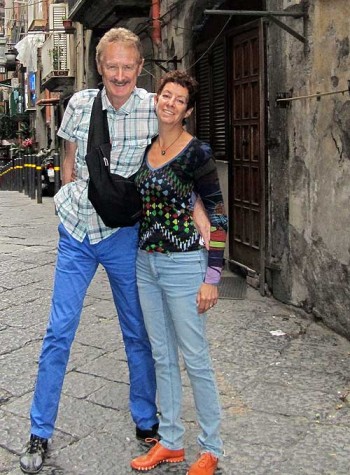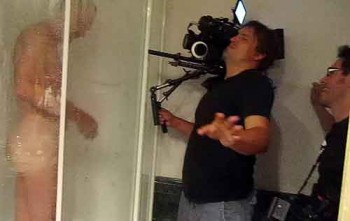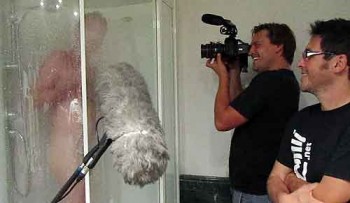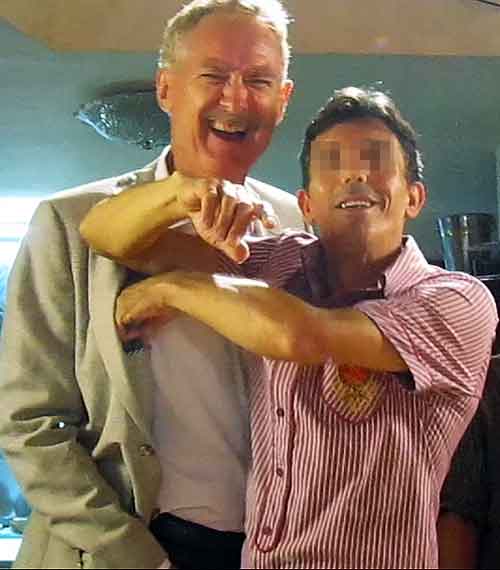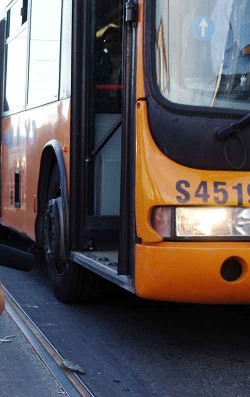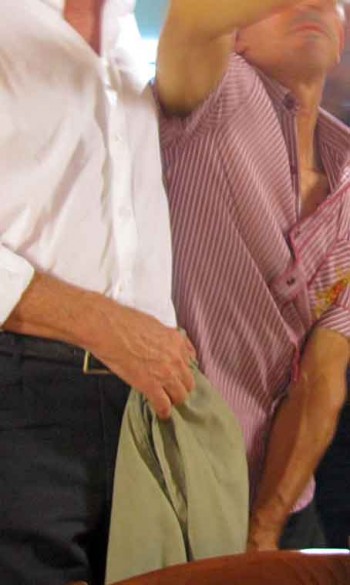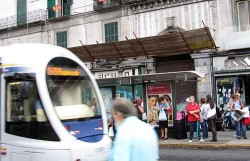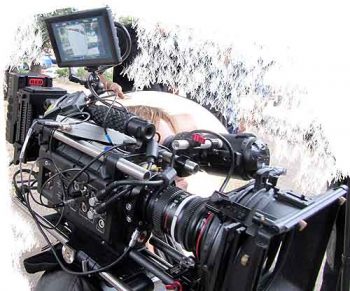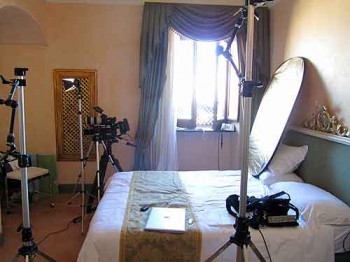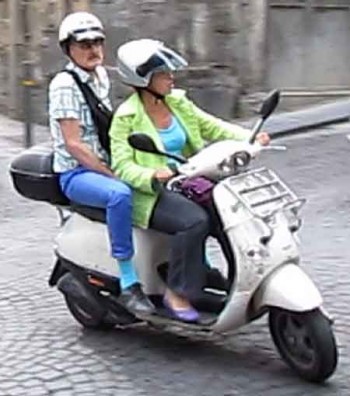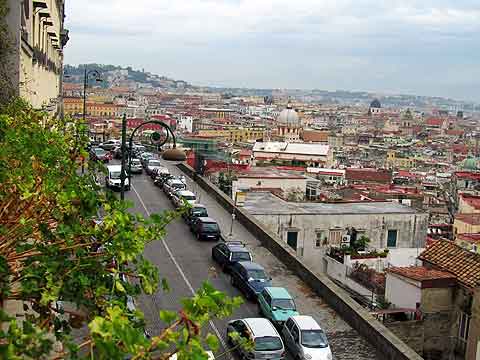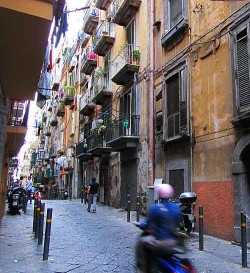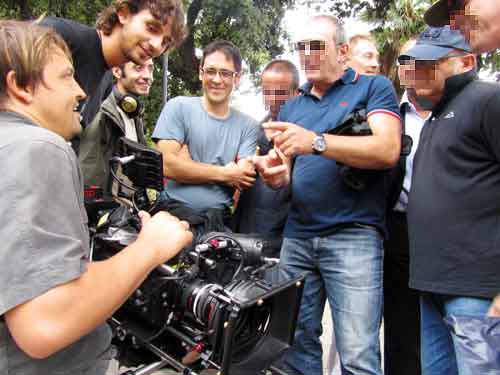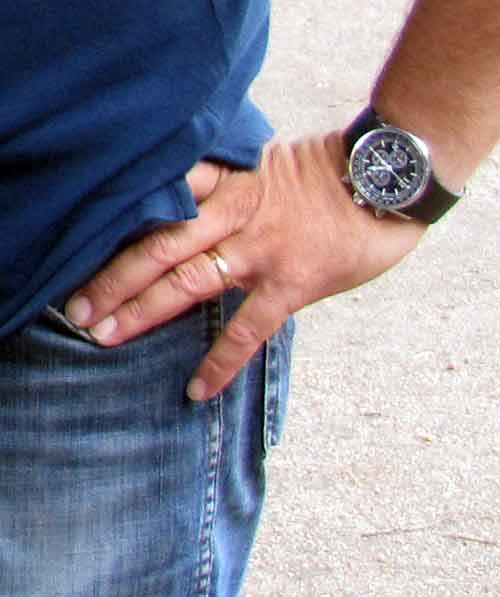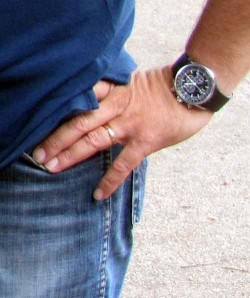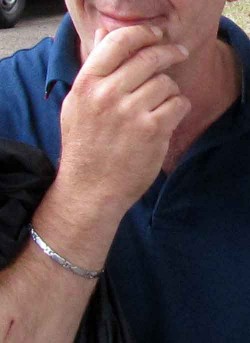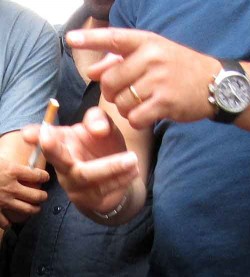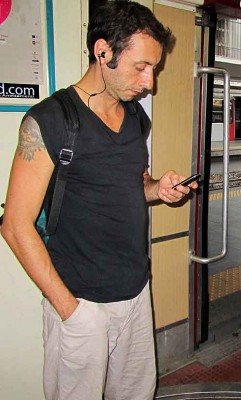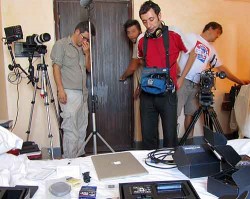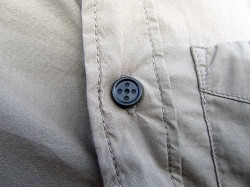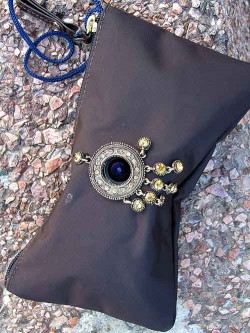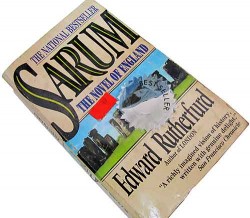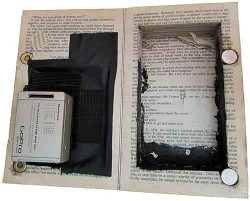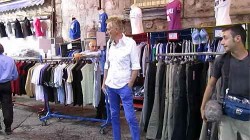 Anticipation. Frank has RSVPed by email, with enthusiasm. But what about the others? Will they come to our dinner? I wonder about the restaurant chosen by Andy. Is it owned by a relative? Is it a regular thieves’ den? Will the food be appetizing and safe to eat? Is it a dive, or has he taken advantage of our offer to select an outrageously expensive place?
Anticipation. Frank has RSVPed by email, with enthusiasm. But what about the others? Will they come to our dinner? I wonder about the restaurant chosen by Andy. Is it owned by a relative? Is it a regular thieves’ den? Will the food be appetizing and safe to eat? Is it a dive, or has he taken advantage of our offer to select an outrageously expensive place?
It’s in a rough neighborhood, is all we are told. Later, our crew go there to scout the lighting needs and see how they’ll set up cameras, but the place is closed.
At the dinner, we hope to exchange pickpocketing techniques. Bob is particularly interested in learning the moves involved in a slow, steady extraction from the front pants pocket. To be on the safe side, we decide to buy a pair of pants with the kind of pocket we know will work.
We go shopping, camera crew in tow. And given the neighborhood, given the mass of equipment that surrounds us on this excursion, we have police protection. Not one, but two cops escort us into the alley of cheap clothing, where we find what we think are the perfect pants. Michele shouts as a man runs toward Van, who has the Red on his shoulder; Van can only see what’s in his frame. One of our cops steers the man away.
Waiting for the dinner, we feel we must stay off the buses. We don’t want our pickpocket friends to think we’re looking for their competitors. Neither do we want to infringe on their work—we’re not law enforcement, we remind ourselves. This city could put a dent in thievery if it wanted to, but criminal activity is an innate and intrinsic part of society here; our values are outsiders’ ethics.
We feel it’s safe, so-to-speak, to research another territory. We make a morning trip to a huge outdoor market where we’re told a few female pickpockets work plucking wallets out of women’s purses. Bob and I wander the aisles of clothing, shoes, hardware, luggage, housewares, and electronics. I’m totally, naturally, distracted by the shoes—of top quality and bottom price. A fabulous pair of tall, lace-up boots costs €25, about $30—10% of regular retail! I want to try them on but I’m supposed to be thiefhunting. Our crew is following us with their hidden cameras. Kun is using an exposed Canon D5 for stills, but it also shoots gorgeous video. We have undercover police guards tailing us at the ends of each aisle. Nothing happens. I try on shoes, I set down my purse, I turn my back on it. Nothing. No takers.
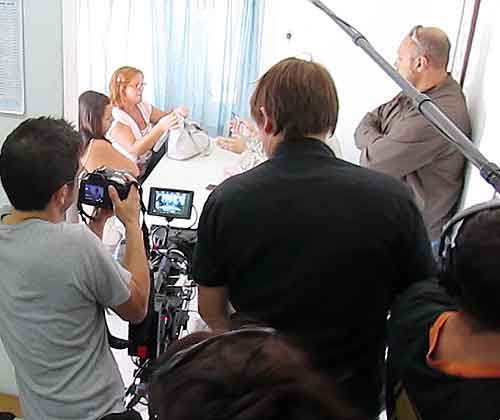
Back in the police office we dissect our failure to attract thieves. Kun’s camera was too obvious, the police say. Shouts were heard warning of cameras. The books containing hidden cameras were held unnaturally, raising suspicion. My purse was carried too carelessly, they say, no local woman would hold it like that.
While we’re debriefing in the police office, three separate victims come to report thefts from their purses. The thieves are there. They’re working. But they’re savvy, and they don’t like me as a victim.
The market is closing now; each vendor is packing up and loading boxes onto trucks. Our dinner with thieves is nearing.
Part one of this story. — Next installment.
This is Part 16 of THE MAKING OF OUR NATIONAL GEOGRAPHIC DOCUMENTARY, PICKPOCKET KING. The film is about us, Bob Arno and Bambi Vincent. We are “thiefhunters in paradise.” The paradise we chose for the story is the warm and wild city of Naples, Italy, home to the world’s best pickpockets. The documentary premieres December 2 at 8pm ET/PT on the National Geographic Channel.
—Originally posted 9/29/10 and soon thereafter password-protected at the request of the producer.


